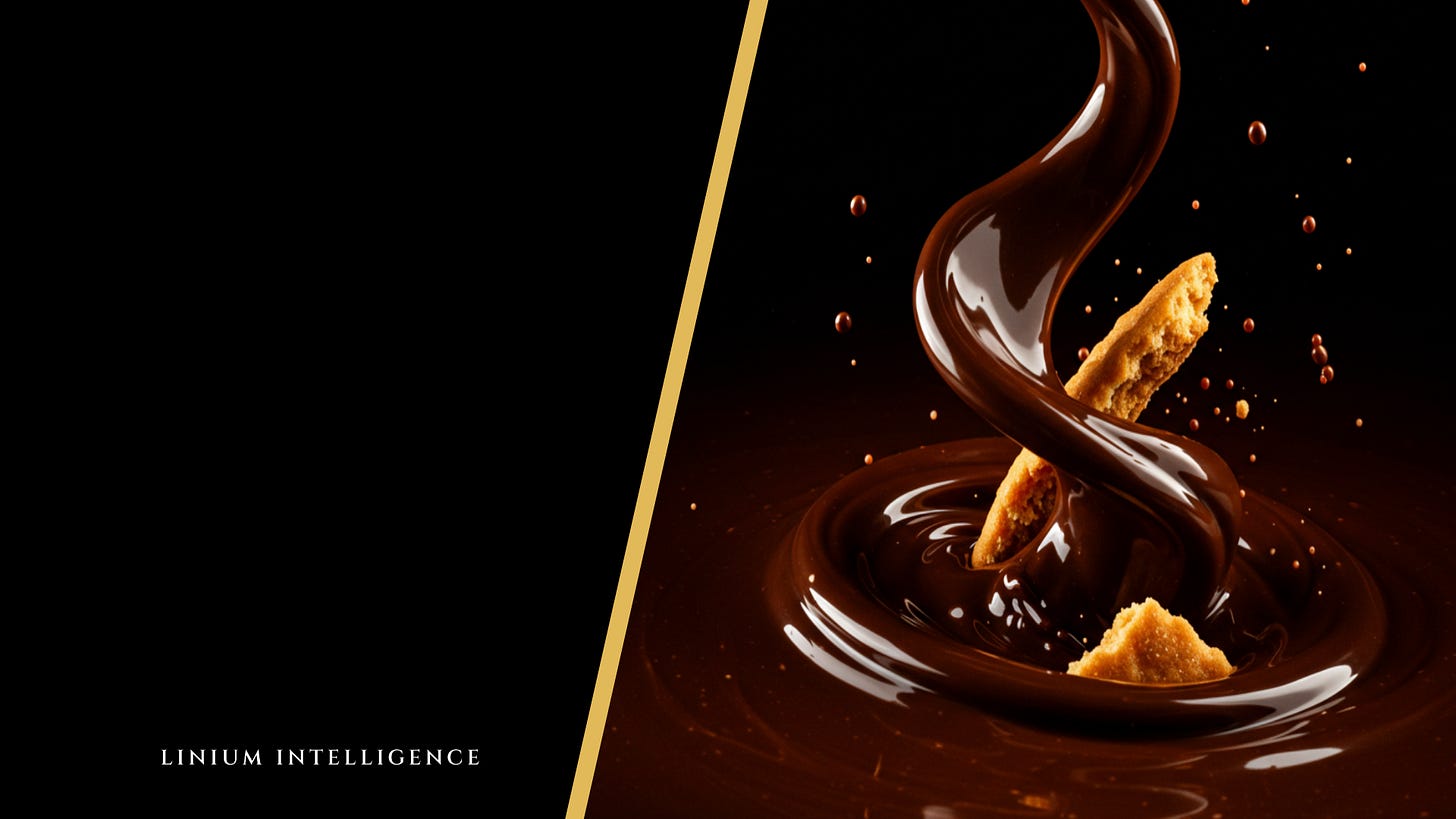Nestlé Half-Year Results 2025: Resilient Growth In A Challenging Environment
Nestlé S.A. reported organic sales growth of 2.9% for H1 2025, driven by 2.7% pricing and 0.2% real internal growth (RIG). Despite this, reported sales dropped 1.8% to CHF 44.2 billion, primarily due to a 4.7% negative foreign exchange impact from a strong Swiss franc.
Profitability saw some shifts, with the underlying trading operating profit (UTOP) margin at 16.5%, down from 17.4% in H1 2024. This change reflects the impact of cocoa and coffee cost inflation alongside increased marketing investments, which rose to 8.6% of sales from 8.1% previously. Net profit for the period fell 10.3% to CHF 5.1 billion. Free cash flow also decreased, down 42% to CHF 2.3 billion, affected by working capital dynamics and lower EBITDA. This trend of free cash flow pressure due to working capital was also observed among chocolate industry rivals like Lindt.
To counteract cost pressures and fuel future growth, Nestlé's Fuel for Growth program secured CHF 150 million in H1 savings, putting the company on track to achieve its CHF 0.7 billion target for 2025. Looking ahead, Nestlé reaffirmed its 2025 outlook, anticipating improved organic growth and maintaining a UTOP margin at or above 16%, despite prevailing macroeconomic uncertainties.
A key highlight of the period was the confectionery segment's strong performance, delivering 8.5% organic growth. While this was primarily led by pricing (10.6%), negative RIG (-2.1%) occurred, notably due to cocoa price elasticity. Growth was further propelled by strategic focus on KitKat and "chocobakery," supported by recent flavor-led launches. These include KitKat Pineapple Tart in Malaysia (timed for Chinese New Year) and KitKat Hazelnut/Salted Caramel in the UK (capitalizing on caramel's position among top flavors, according to Linium Intelligence data), and Chocobakery treats like Choco Cookies and Choco Biscuit, demonstrating effective alignment with regional tastes and cultural preferences.
Although KitKat holds a relatively smaller market share, typically in the low single digits compared to multinational mass-market rival Cadbury’s share, which often exceeds 20%, it is still among the top brands in major markets such as the UK, Australia, and New Zealand, as well as emerging markets such as Malaysia, To strengthen its position and adapt to consumer trends, Nestlé continues to make significant investments in product development. This year's notable launches include new KitKat Chunky flavors (KitKat Chunky Funky and KitKat Chunky Duo Salted Caramel), Nestlé Damak Ezme, and Nestlé Yorkie Biscuit & Brownie. For comparison, Cadbury's 2025 innovations feature popular releases such as Biscoff and Iced Latte variants in the UK and a reformulated King Size bar in Malaysia.
Beyond product innovation, Nestlé is actively advancing its sustainability agenda. The company is strengthening its presence in responsible sourcing, exemplified by its partnership with Barry Callebaut to support significant reforestation efforts in Brazil, a region vital for cocoa and coffee production.

